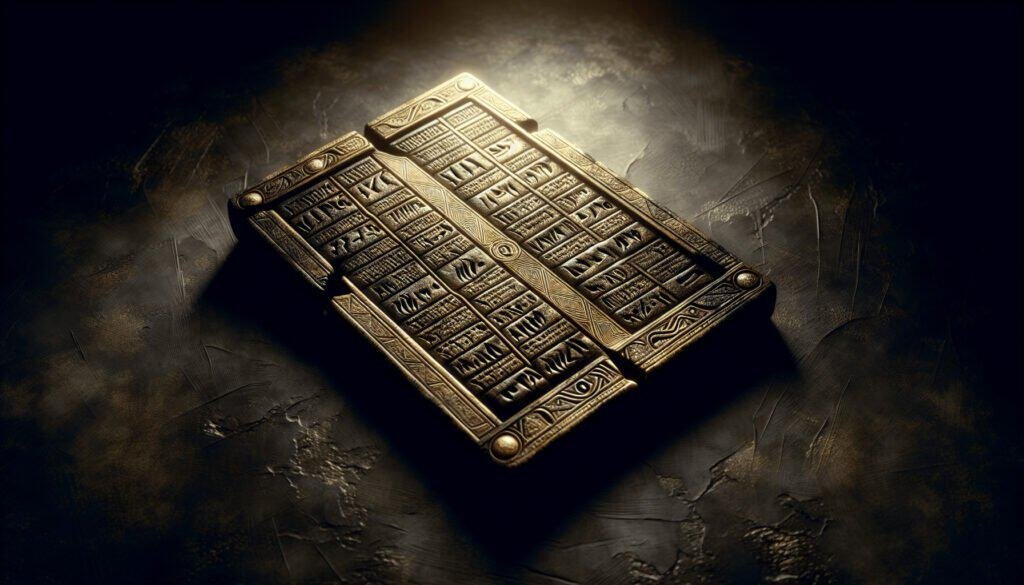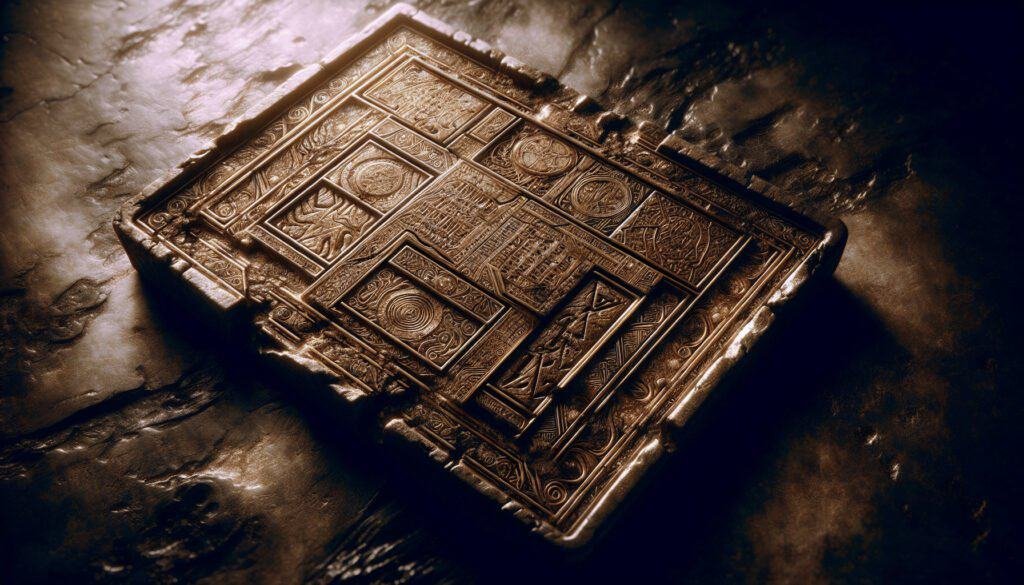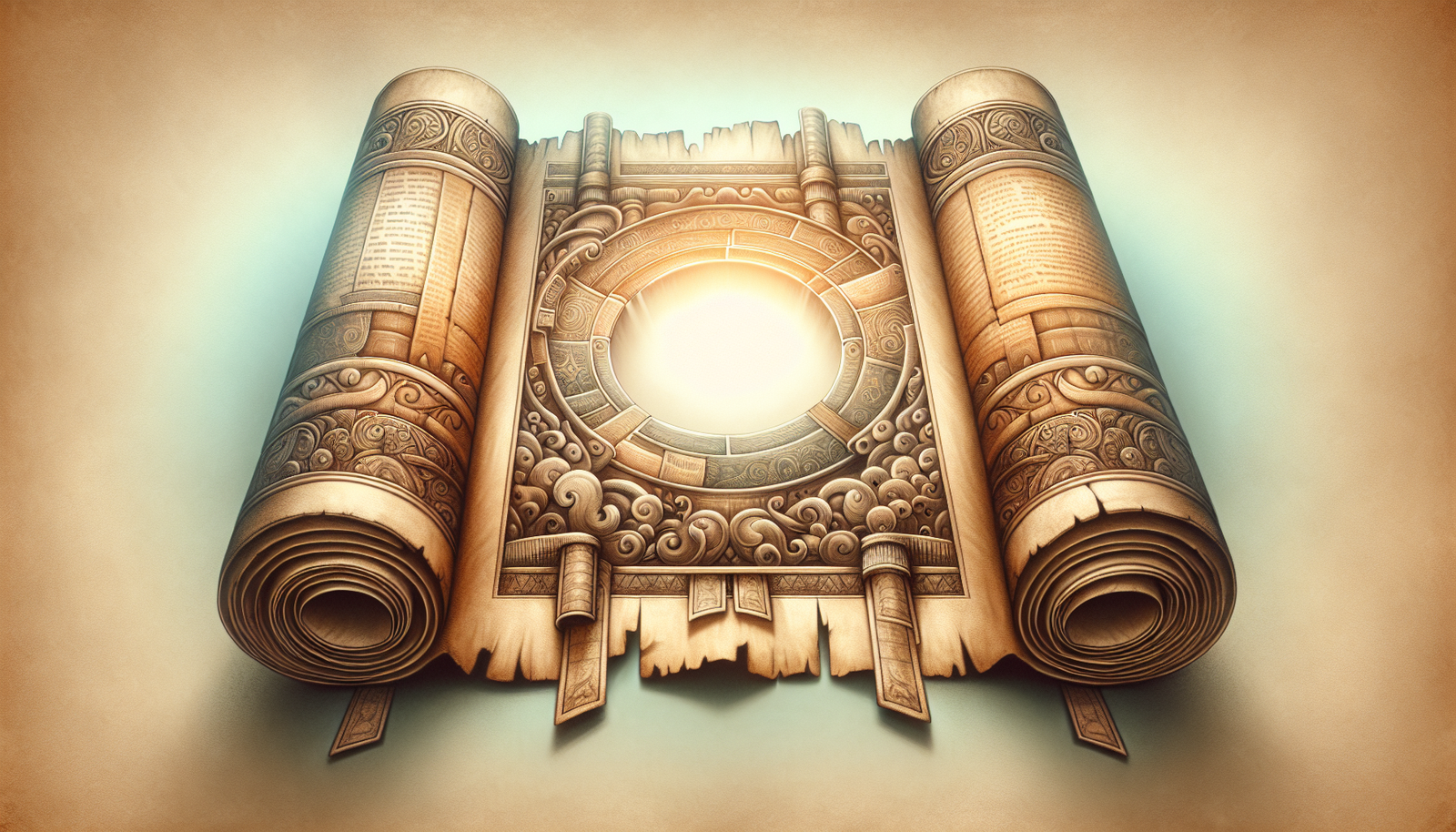Have you ever pondered the significance of the Tablets of Law in shaping moral authority throughout history? It’s an intriguing exploration, wrapped in layers of cultural, theological, and historical narratives. As we dissect this fascinating subject, we’ll look to the Ark of the Covenant and the moral implications of the commandments inscribed upon those iconic tablets.

The Ark of the Covenant: A Brief Introduction
The Ark of the Covenant isn’t just a relic; it is laden with meaning, representative of a divine pact between God and the Israelites. Think of it as the ancient equivalent of a government’s constitution—it set the standard for moral and ethical behavior.
Historically, the Ark was said to contain the Tablets of Law, the very heart of Jewish slavery, captured in a sacred object that encapsulates an entire culture’s moral compass. The Ark’s existence raises questions about authority: Who holds the moral high ground, and how is it maintained?
The Tablets of Law: Origins and Significance
The Historical Context
The Tablets of Law, traditionally known as the Ten Commandments, originate from the stories told in the Book of Exodus. They were received by Moses on Mount Sinai after the Exodus from Egypt—a formative period for the Israelites. These commandments weren’t just rules; they were seen as divine directives that would guide the people toward a covenant life.
Scriptural References
These commandments can be found in Exodus 20:2–17. Each commandment plays a significant role in shaping the social and moral fabric of the Israelites and, by extension, much of Western moral thought.
For instance, the commandment “Thou shalt not kill” does more than prohibit murder; it establishes a foundational respect for life that echoes through subsequent legal systems, ethics, and philosophies.
Archaeological Insights
Finding the Ark
Over the years, there have been countless searches for the Ark and its associated relics. Archaeology has contributed both to our understanding and the mystery surrounding the Ark. While some would say they’ve found the Ark, others maintain it remains lost to history.
The Dead Sea Scrolls: A Window into Ancient Ethics
The discovery of the Dead Sea Scrolls shed light on the interpretation and application of the Tablets of Law during the Second Temple period. Through these texts, we gain insights into how ancient communities understood morality and governance.
Examples from Archaeology
- The Tel Dan Inscription: This archaeological find references the House of David, providing historical context around biblical figures, and suggests the existence of ethical governance tied to Davidic kingship.
- Qumran Community: Their writings show how interpretative traditions surrounding the commandments were crucial in defining moral authority for their sect and broader Jewish communities.

The Role of the Ark in Ancient Society
A Symbol of Divine Presence
The Ark wasn’t just a physical object; it was the symbolic representation of God’s presence among His people. Within this context, authority is twofold: it derives from divine sanction and the community’s collective understanding of that authority.
Moral and Ethical Framework
The commandments acted as a moral framework for the Israelites, shaping laws and guidelines in everyday life. The Ark served as a reminder of this framework, urging people to live in alignment with divine expectations.
Theological Perspectives on Moral Authority
The Dual Nature of Authority
From a theological standpoint, moral authority can be viewed as both divine and human. While the Tablets of Law express divine commands, their interpretation and implementation hinge upon human agencies—like religious leaders or elders.
The Conundrum of Human Interpretation
This brings forth an interesting debate: does human interpretation dilute or enhance the authority of the commandments? While the original commandments carry weight, human contexts and cultural shifts add layers of complexity that can both clarify and obscure their meanings.
Modern Reflections on Ancient Authority
Echoes in Contemporary Ethics
Our current moral and ethical discussions resonate with principles established by the Tablets of Law. Issues such as justice, equality, and stewardship reflect these ancient commandments.
The Relevance of Interpretation in Modern Society
In an age where moral relativism is on the rise, the debate surrounding the interpretation of these commandments continues. Are they static, or do they adapt to contemporary challenges and understandings? This question remains a hot topic in theological and philosophical circles.
Case Studies: The Commandments in Action
The Ten Commandments and Legal Systems
The influence of the Tablets of Law stretches across various legal systems, particularly in Western cultures. The commandment “Thou shalt not steal” echoes through legal frameworks, establishing the foundation for property rights and societal trust.
| Commandment | Legal Principle | Contemporary Reflection |
|---|---|---|
| Thou shalt not kill | Right to Life | Discussions on abortion, capital punishment, and war ethics |
| Thou shalt not steal | Property Rights | Core principles in law and modern capitalism |
| Honor thy father and mother | Family Law | Ethical considerations in family dynamics and elder care |
Moral Dilemmas: A Closer Look
Every moral framework faces dilemmas. Take, for example, the commandment against murder. Situations arise that challenge this principle, such as self-defense or wartime ethics. This invites discussion around the boundaries and exceptions of such commandments.
The Ark’s Authority at Crossroads
Challenges to Traditional Authority
In many religions, changes in cultural norms have led to shifts in how moral laws are interpreted. With modernity brings challenges that question age-old values, forcing a re-examination of the authority of the Ark and the commandments.
Interfaith Perspectives
Various religions have their interpretations of moral authority, and dialogue among them can sometimes highlight the relevance or redundancy of certain commandments. The discussion can be vibrant, leading to either collaboration or conflict.
The Role of Technology
Can we ignore how technology reshapes our expectations and behaviors? With the rise of digital platforms, questions of morality in the online space emerge. Cyber ethics might not fit neatly into the ancient moral framework outlined by the Tablets of Law.
Conclusion: Ancient Tablets, Modern Minds
The Ark and its Tablets of Law represent a cornerstone of moral authority that has echoed through history and remains part of our modern discussions. They embody an ongoing dialogue about morality, authority, and what it means to live a just life.
As you look at the complexities arising from the commandants, it’s clear that their significance cannot merely be seen through a historical lens. They invite you to engage with modern interpretations, challenge existing notions of morality, and empower yourself with a deeper understanding of what it means to stand by the moral principles etched upon those ancient tablets.
So, the next time you encounter a moral dilemma, think back to those tablets. Are they still relevant? How do they shape your sense of moral authority? At the intersection of ancient wisdom and contemporary understanding, the quest for meaning continues.



